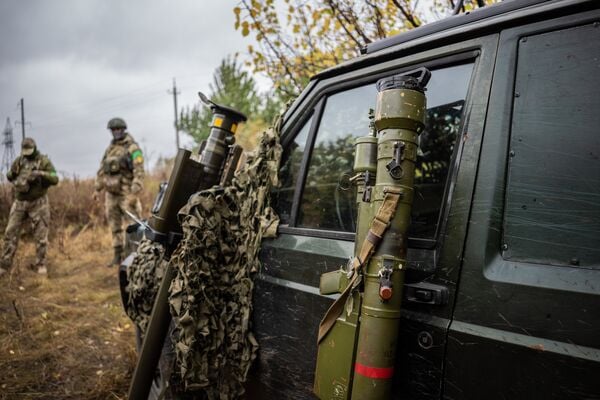
Manportable air-defence systems (MANPADS) and members of a Ukrainian anti-UAV unit in Donetsk Oblast, Ukraine, on 19 October 2024. (Anadolu via Getty Images)
Estonian defence firm Frankenburg Technologies plans to test its Frankenburg Missile Mark 1 in Ukraine in the coming months, hoping to ramp up production, the company told Janes.
The missile, according to Kusti Salm, CEO of Frankenburg Technologies, targets unmanned aerial vehicles (UAVs) capable of flying at altitudes of up to 2 km. Shahed UAVs are regularly used at those altitudes by Russia to attack Ukrainian cities and infrastructure.
The Iranian loitering munitions Shahed-131 (called Geran-1 by the Armed Forces of the Russian Federation) and Shahed-136 (Geran-2) weapon systems have been used in Ukraine by Russian forces since 2022, according to Janes Weapons: Air-Launched.
Frankenburg Technologies aims to “revolutionise missile targeting by employing our cutting-edge, AI [artificial intelligence]-powered situational awareness platform”, according to information on the company's website.
Frankenburg's Missile Mark 1 includes this AI feature “to a limited extent”, Salm told Janes on 28 November 2024. “We have a proprietary threat anticipation platform for aerial threat detection and target acquisition.”
The company's goal is to “bring down the price of air-defence missiles by a factor of 10”, Salm told Janes. “We also aim to increase manufacturing to hundreds per day (not hundreds a year as it is now).”
If trials are successful, production of the missile could be established inside Ukraine, as per a press release published by Ukraine's Ministry of Defence (MoD) on 8 November. During a meeting between the Frankenburg Technologies team, which included Salm, and Ukraine's Deputy Minister of Defence Brigadier General Anatolii Klochko, both sides agreed that financing for missile production would need to be determined as a next step.
Looking to read the full article?
Gain unlimited access to Janes news and more...







